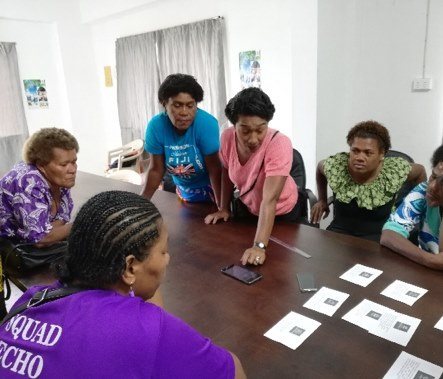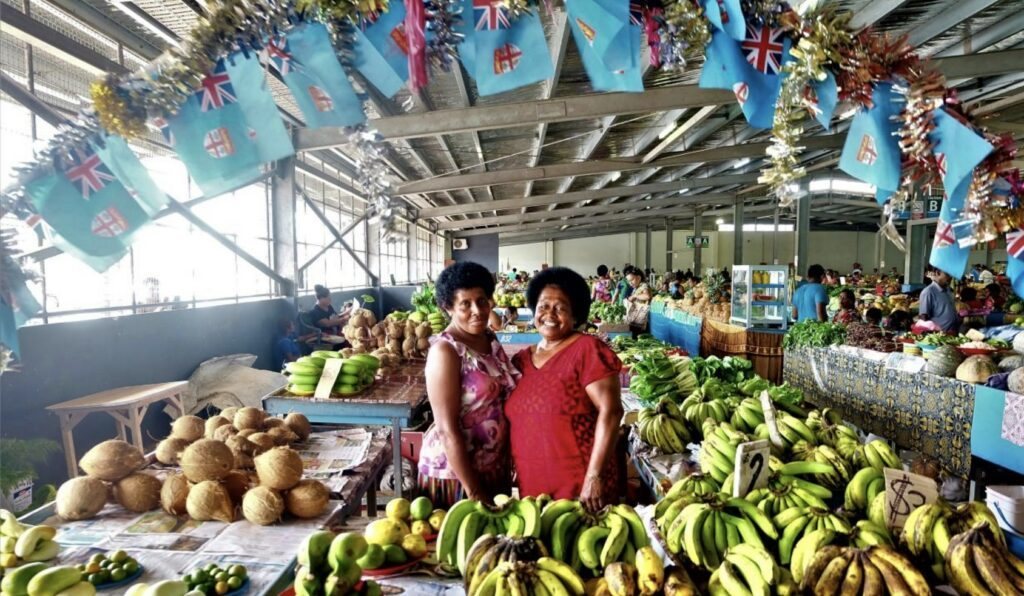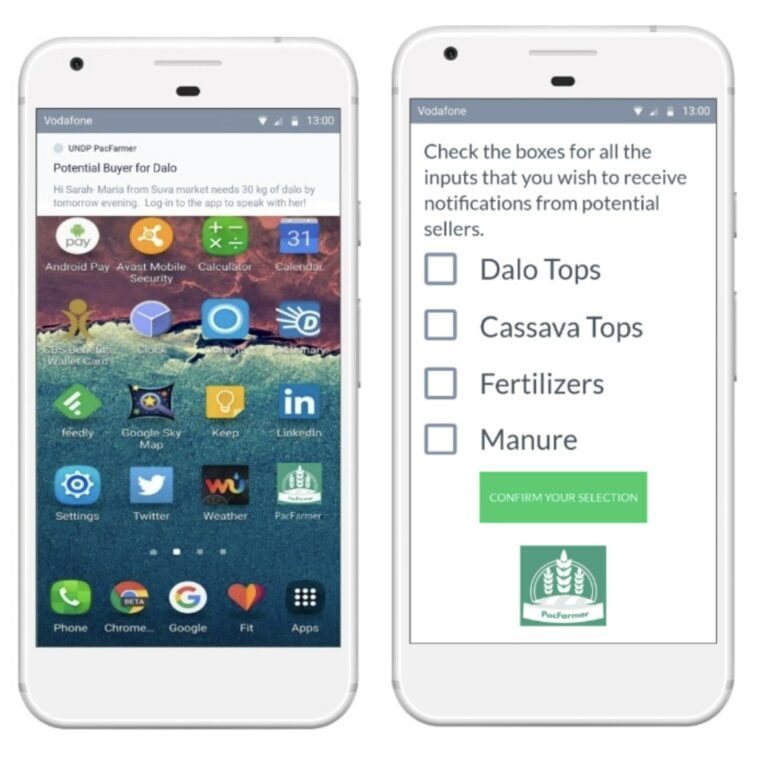Empowering Women With Technology: Lessons Learnt from a Talanoa Dialogue
Tags

As new technologies and tools offer new job opportunities and avenues for economic advancement, women in the Pacific face fresh challenges alongside long-established ones, such as the “digital divide”.
The Micro, Small & Medium Enterprises (MSME) sector in Fiji contributes to economic growth and employment in the economy, with over 24000 MSMEs, mainly in the informal sector(1). This sector has one of the highest levels of female participation in Fiji, with around 50% of firms owned by women. However, limited access to finance and advisory services has hindered the potential of this key economic segment.
Through the regional initiative on Transforming the Future of Work for Gender Equality (TFOW4GE), UNDP Fiji aims to increase the number of women in the MSME sector who have access to markets and financial instruments. This is done by building on the success of the PacFarmer App(2) in urban centers, and upscale it to the rural markets while anticipating the likely unintended consequence of this shift to rural considering the well-known “digital divide” which disproportionally affects rural women.
To this end, a multi-disciplinary team, consisting of UNDP Accelerator Lab, Gender and PFIP Financial Inclusion experts, worked to strengthen the PacFarmer App digital agriculture and financial services delivery platform. They followed Human-Centered Design (HCD) principles to understand female farmer’s digital challenges in rural environments, and thereby enable rapid adaptation of the product in real context to boost the usage of the PacFarmer App.
The process was rooted in co-designing solutions with the users because the people best equipped to explore and interpret context are often those embedded within it. Co-design allowed rural women to sit side-by-side with UNDP and use their lived experience to inform the PacFarmer App design, thereby helping address the challenges and barriers women face in accessing digital agriculture and financial services. Progressing through each step of the design process, the team learned to ideate, test, and adapt the application to meet the needs of women market vendors and micro-entrepreneurs in targeted value chains. Specifically, UNDP’s focus was on rapid user testing, feedback gathering, and improvement.
From visits to the Eastern, Western, and Northern parts of Viti Levu island, the team had the opportunity to not only talk to many farmers but also sit and observe female agricultural communities. The Pacific is known for interacting in a Talanoa(1). Dialogue platform where people from diverse groups come together to share stories and lessons. During these “Talanoa” sessions, the team interviewed women copra, rice, vegetable, dairy, and sugarcane farmers, all of whom had their different views and thoughts about the PacFarmer App.
By including female market vendors and farmers in designing the solution prototype, UNDP gained insights in understanding the succinct needs in user segments (cooperative vs. traditional farmers, older vs. younger, whole farmers vs. farmer-market vendors) and how these nuances should be considered when designing digital finance tools that are relevant to women.
 Photos Credits: UNDP Fiji
Photos Credits: UNDP Fiji
For example, farmers want to have more buyers for their products that are non-cooperatives, while market vendors want to have price certainty and guaranteed product quality. Women rural farmers who come to town are more “aware” and savvier than farmers who do not.
Through this prototype, UNDP also learned that women farmers tend to rely on children to help them understand digital technology (many of whom are teenagers). This can be an opportunity to increase both women’s and youth’s familiarity with PacFarmer App services. Hence, during the ideation phase, women suggested adding education modules for children, alongside guidance and information for farmers. Other noteworthy ideas proposed during the ideation phase with the women farmer team members were creating buyer notifications and simplifying the log-in process.

UNDP Fiji quickly learned that the women we talked to were rarely convinced by the app until they downloaded it on their phones and saw the benefits the app offered to them such as having access to their financial earnings through the app. This led to farmers asking more questions about the PacFarmer App and then offering suggestions and potential improvements on the app design.
The prototyping phase allowed UNDP/PFIP to use User experience (UX) software to test the Pac Farmer App with female farmers and market vendors. From all the suggestions provided during discussions, participants voted in favour of prototyping the buyer notification idea. This involved allowing farmers to sign-up receive notifications from prospective buyers based on their interest in any crop. The idea was then tested with rural farmers and market vendors of both genders. The buyer notification feature was well-received by farmers, who fed back a suggestion that a similar feature could be added for farmers to obtain crop inputs such as fertilizers and manure, which would allow the farmer to act as a ‘buyer’ in addition to a seller.
While there are many UNDP projects like the Markets for Change project that aim to empower women in various ways, the goal of the UNDP/UNCDF PFIP project here is to improve digital literacy for women in rural agricultural and economic environments. The UNDP project in Fiji is especially focused upon the use of digital financial services such as the PacFarmer App to improve women’s access to different ways of doing business, by enabling women’s access to digital financial services and other information.
The HCD process embarked to adapt the PacFarmer App to be more responsive to gender and context will now continue to guide the development of the next iteration of the apps to resonate more deeply with women users — ultimately driving adoption, engagement, and growth of the digital agriculture and financial products and services by the rural women farmers. Engaging in HCD and co- designing with women users has tremendous potential to bring about a significant shift in understanding gender-based product design. Ultimately, we believe that the adoption of a mobile phone-based service delivery platform like the PacFarmer App will lead to improved income and economic empowerment of rural female market vendors and rural female farmers in Fiji.
(1) Talanoa is a traditional word used in Fiji and across the Pacific to reflect a process of inclusive, participatory, and transparent dialogue. The purpose of Talanoa is to share stories, build empathy, and to make wise decisions for the collective good. The process of Talanoa involves the sharing of ideas, skills, and experience through storytelling.